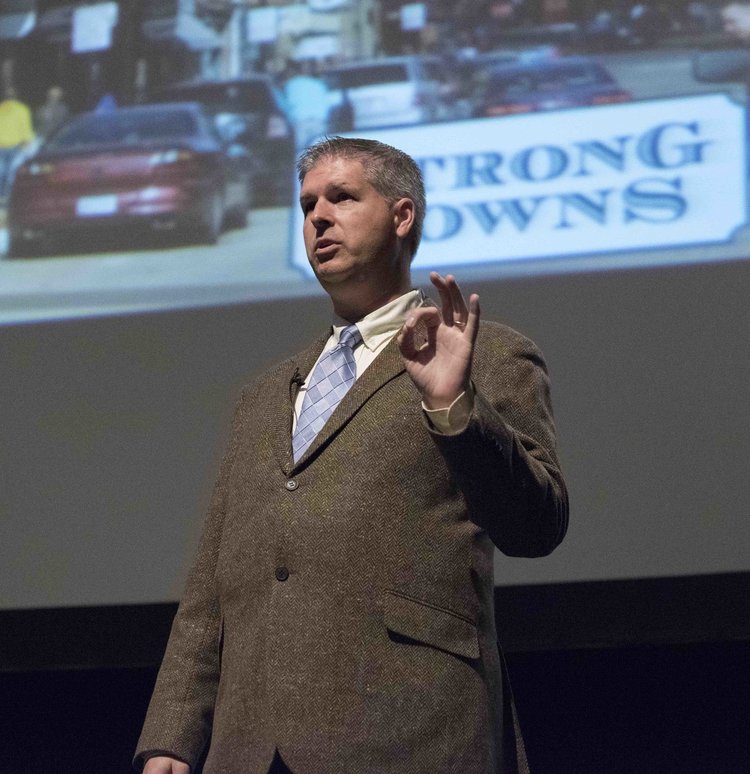Neighborhoods First Presentation
Charles Marohn, founder of Strong Towns and speaker.
Risky, low-returning projects too often become expensive boondoggles that haunt a community for decades. Public officials everywhere are desperately seeking an alternative. This talk will cover the "Neighborhoods First" approach to show how a community can grow stronger by making small, incremental investments over time. By observing how neighbors live their lives, by asking them where their daily struggles are, by getting out on the street and discovering what is actually going on, any local government can discern what their community’s pressing needs are. These projects are the high return investments and they are all around us.
A portfolio of incremental projects, each building on observed needs and past successes, is the basis of a solid, long-term investment strategy for communities of any size. It is an approach that fits into every budget. It will empower a local government to move beyond the lack of ownership and control that comes with traditional grant programs. And most importantly, you can get started right now.
A Neighborhoods First presentation will demonstrate how to take less risk and grow financially stronger, all while directly serving the people already living and working in your city.
Topics Covered in this Presentation:
An introduction to project development: How to turn top-down project delivery into bottom-up, neighborhood-driven projects.
How to make low risk investments that pay off higher.
Using these investments to improve quality of life for residents.
Watch an example of this presentation.
Presentation length: This presentation typically takes 90 minutes, with 60 minutes for speaking and 30 minutes for Q&A. It can be condensed to a 60-minute presentation if needed.
Please contact Strong Towns' Pathfinder, Michelle Erfurt, if you have any questions about this presentation or hosting a Strong Towns event.





Many of us have great ideas for our neighborhoods, but feel unable to act on them—and that can be discouraging. But looking at your idea in a different way may change how you see it and whether you do anything with it.